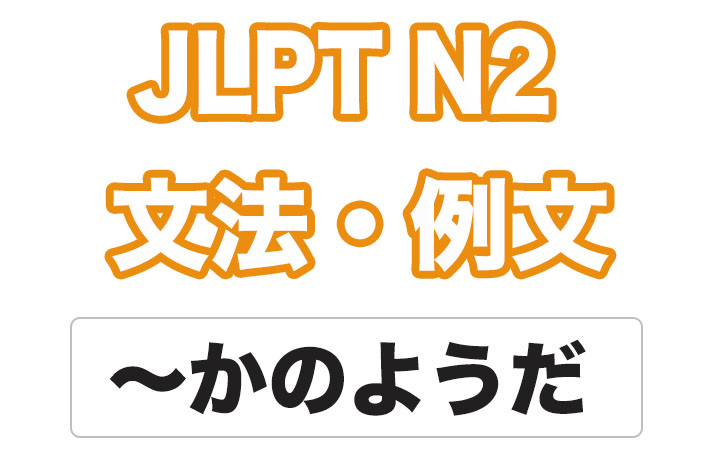
文型:〜かのようだ / 〜かのように
[意味]
"〜ように見える / 〜ように感じる"
実際にはそうではないが〜のように見えたり感じたりすると言いたい時に使う。
[英訳]
"seems / feels like"
Used when you want to say that something seems or feels a certain way, even though it is not actually so.
[接続]
V(普通形)+ かのようだ
イA(普通形)+ かのようだ
ナA(普通形)+ かのようだ
N(普通形)+ かのようだ
※ナAの現在形の肯定形は「ナAである + かのようだ」
※Nの現在形の肯定形は「N + かのようだ / Nである + かのようだ」
[JLPT レベル]
N2
[備考]
後ろに名詞が来る場合は「〜かのようなN」となる
例文
3月なのにまた、寒くなりましたね。まるで真冬に戻ったかのようですね。
Even though it's March, it has gotten cold again. It's as if we have returned to midwinter.
妻は付き合って初めてあげたネックレスを10年経った今でも、宝物かのように大切にしている。
My wife still treasures the necklace I gave her when we first started dating ten years ago as if it were a precious treasure.
彼はまるで全てを知っているかのように話しているが、全て彼の想像にすぎない。
He talks as if he knows everything, but it's all just his imagination.
彼は今日初めて会うのに、前に何度も会ったことがあるかのような態度で話してくる。
Even though it's the first time we're meeting today, he talks to me as if we've met many times before.
Instagramでたくさんの人にフォロワーされると、まるで有名人にでもなったかのようだ。
When I get a lot of followers on Instagram, it feels as if I have become a celebrity.
彼女は辛い出来事があったにもかかわらず、何事もなかったかのように明るく振舞っていた。
Despite having gone through a tough experience, she behaved cheerfully as if nothing had happened.




